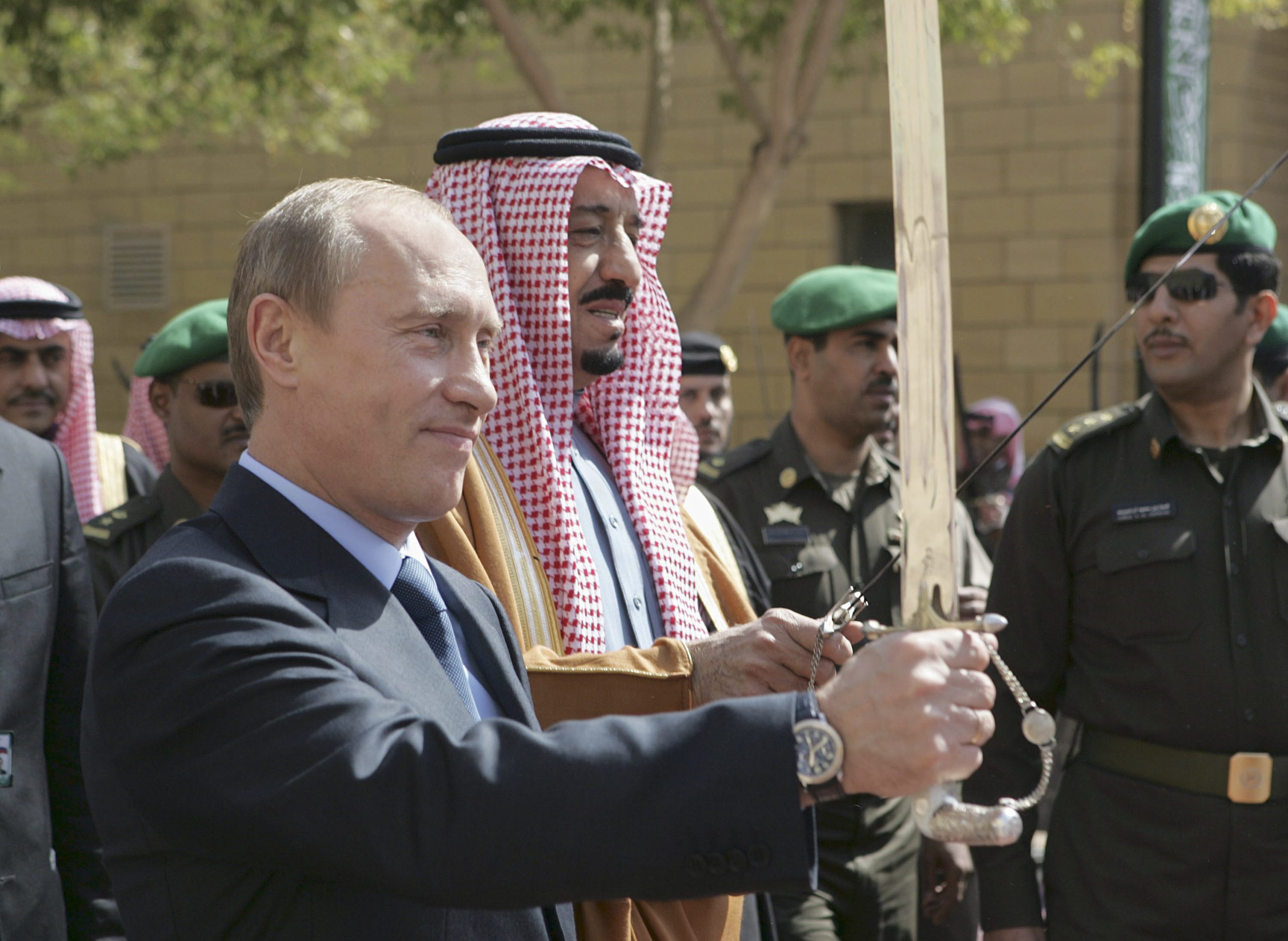
COURTING THE BEAR
Ageing Saudi monarch to lead trade delegation to Moscow

When he arrives in Moscow today, King Salman will become the first reigning Saudi Monarch to visit Russia.
Being the largest oil producers on the planet, both countries depend on the flow of petrodollars to keep their economies afloat. Both Moscow and Riyadh are interested in stabilising oil prices, with last year’s deal between Saudi-led OPEC and Russia to cut worldwide oil production being a prime example of this.
Given the shared interests in the energy arena, economic cooperation is set to further intensify; the two countries recently signed a $1 billion energy project investment fund and an Arctic liquid natural gas project.
While economic ties are expanding, the Syrian theatre sets a limit to political rapprochement, as the two countries’ interests in the conflict are fundamentally opposed. Moscow’s cooperation with Iran to keep Syrian dictator Bashar al-Assad in power is viewed with great suspicion by Saudi Arabia.
It is reasonable to assume that the two sides will intensify their collaboration on energy and business matters; Russia is likely to advocate for maintaining oil production cuts ahead of an OPEC meeting in November. Regardless, diverging regional interests will prevent cooperation from spilling over into the political arena.
AMERICA FIRST?
Trade data to show widening deficit despite Trump policy

Data released by the Commerce Department today is expected to show a slight narrowing of the US trade deficit through August.
While experts disagree on whether America’s trade deficit really needs to be addressed, President Trump has made its reduction a key priority. To achieve this feat, Mr Trump has already pulled the US out of the Transpacific Partnership Agreement and has vowed to impose higher tariffs on certain imports, like steel and aluminium.
So far, this strategy has not had the desired effect; since January the overall US trade deficit has risen by 10% to $320 billion. Ironically, Trump’s desire to impose tariffs on Chinese steel and aluminium imports has been a key driver of this raise. While the tariffs are still in the planning phase, steal and aluminium imports have added more than $10 billion to the US trade deficit between January and July.
While negotiations on NAFTA and the Korea-US Free Trade Agreement won’t be complete for some months, the detrimental effect that the spectre of tariffs has had doesn’t bode well for the president’s plan. Regardless, Trump will likely attribute August’s expected trade deficit reduction to his “America First” approach and use it as justification to continue pursuing protectionist policies.
Delve deeper: 2017 Geopolitical Forecast: The Americas
FIGHTING FRAUD
EU Parliament to vote on increasing judicial cooperation

Four years after the establishment of a European Public Prosecutor’s Office was first proposed by the European Commission, the European Parliament is set to vote on its formation today.
If approved, the authority, which is to be based in Luxembourg, will investigate and prosecute fraud cases against the EU budget and cross-border VAT offences. While the European Parliament will likely green-light the proposal, the authority’s establishment highlights a major shortcoming of the EU’s integration process.
While most EU countries favour closer cooperation, the opposition of certain member states to hand over competencies to Brussels runs the risk of creating a multi-speed Europe, with some parts of the union more integrated than others.
Only 20 of the EU’s 27 member states voted to implement the proposal, severely constraining the authority’s power and limiting its ability to fulfil its mission of improving pan-European judicial collaboration.
Ironically, Poland and Hungary, two countries that reject the idea of a multi-speed Europe, have chosen not to adopt the proposal to establish a public prosecutor’s office.
HAPPENING ELSEWHERE…
Coalition talks begin in New Zealand with Peters as kingmaker

12 days after New Zealand’s election, Winston Peters—the leader of populist NZ First—will begin coalition talks with both major parties. The centre-right National Party clinched 46% of the September 23 vote, with centre-left Labour claiming 35%. While NZ First’s 7.5% gives the anti-immigration party substantial sway, the result was bitter-sweet for Mr Peters, who lost his seat in parliament. Today’s talks are preliminary—a final decision will likely be made by October 12. Expect National to secure a second term by leaning right.

